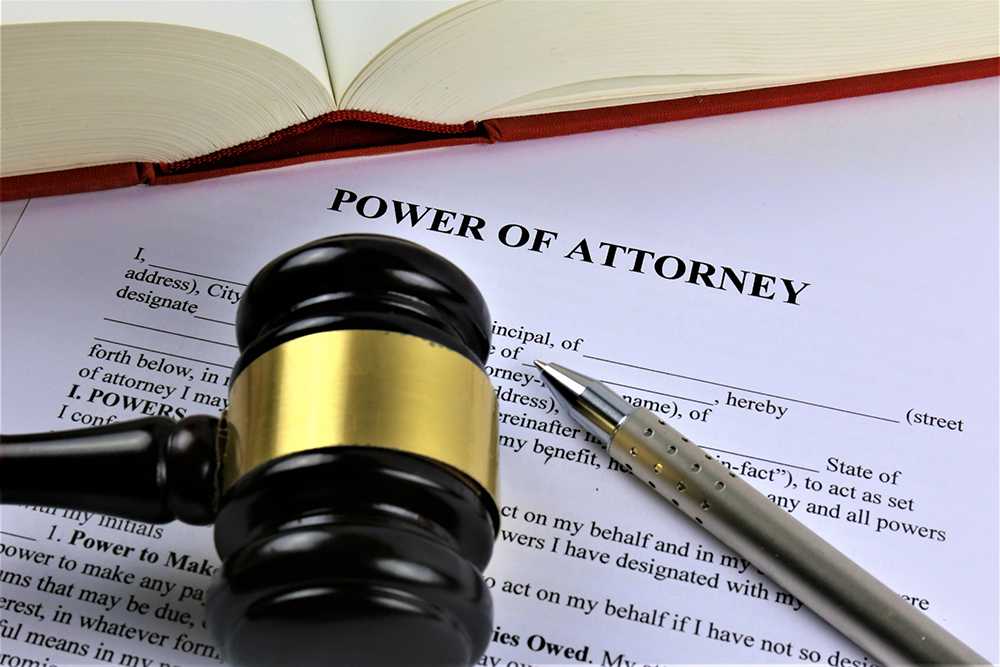Posted by Janine Griffiths
How to revoke a power of attorney

A power of attorney (PoA) is a legal document that allows one person (the attorney) to make decisions on behalf of another (the donor). While this can be useful for managing financial, legal, or health matters, there may come a time when the arrangement needs to be cancelled.
In the UK, the process for revoking a PoA depends on the type of agreement in place. Whether you have an Ordinary Power of Attorney, a Lasting Power of Attorney (LPA), or an Enduring Power of Attorney (EPA), it’s important to follow the correct legal steps to ensure the cancellation is valid and recognised by the relevant authorities.
Below, we will outline how to revoke a power of attorney, what formalities need to be completed, and what happens after revocation.
Can a power of attorney be revoked?
Before we discuss how to revoke a power of attorney, the key question is ‘can a power of attorney be revoked?’. The simple answer is yes, but it depends on whether you still have mental capacity.
If you still have mental capacity – You can revoke an Ordinary Power of Attorney (OPA), a Lasting Power of Attorney (LPA), or an Enduring Power of Attorney (EPA) at any time, as long as you follow the correct legal steps. This usually involves creating a written Deed of Revocation and notifying all relevant parties.
If you have lost mental capacity – An OPA automatically becomes invalid if you are determined by a medical professional to have lost mental capacity. However, an LPA or a registered EPA remains in effect, and you can no longer revoke it yourself. In such cases, only the Court of Protection can intervene to remove an attorney if necessary.
Types of power of attorney
In the UK, there are three different types of power of attorney. The way you revoke a power of attorney will depend on which type of power of attorney you have. The types of power of attorney in England, Northern Ireland and Wales is:
Ordinary Power of Attorney
An Ordinary Power of Attorney (OPA) allows someone to make decisions on your behalf for a temporary period, usually when you still have mental capacity but need assistance with financial matters. This type of PoA is commonly used if you are abroad, in hospital, or otherwise unable to manage your affairs for a short time. Since it is not registered with the Office of the Public Guardian (OPG), revoking an OPA is relatively straightforward.
Lasting Power of Attorney (LPA)
A Lasting Power of Attorney (LPA) is a legally binding document that remains in effect even if you lose mental capacity. It must be registered with the OPG before it can be used. There are two types of LPA: one for health and welfare and another for property and financial affairs. Cancelling an LPA requires a formal revocation process, including notifying the OPG.
Enduring Power of Attorney (EPA)
An Enduring Power of Attorney (EPA) was the predecessor to LPAs and is only valid for financial matters. While new EPAs can no longer be created, existing ones remain valid. If an EPA has not yet been registered because the donor still has mental capacity, it can be revoked in a similar way to an OPA. However, if it has already been registered with the OPG due to loss of capacity, additional steps may be required to cancel it.
How to revoke a power of attorney
We have briefly discussed how to revoke a power of attorney for the different categories above.
This section focuses on cancelling a power of attorney that is registered with the Office of the Public Guardian. In most cases, this applies to a Lasting Power of Attorney (LPA), but it may also be relevant if you have a registered Enduring Power of Attorney (EPA) or, in rare cases, an Ordinary Power of Attorney (OPA).
Below, we have outlined how to terminate a power of attorney in 3 easy steps.
Step 1: Determine whether you need a full Deed of Revocation or Partial deed of Revocation.
A full Deed of Revocation completely cancels the power of attorney, meaning the attorney(s) can no longer act on behalf of the donor in any capacity. It applies when the donor wants to fully revoke the authority granted to the attorney(s).
On the other hand, a Partial Deed of Revocation only cancels specific powers or removes certain attorneys while allowing the rest of the PoA to remain in effect. It is used when the donor wants to modify the PoA rather than revoke it entirely.
The best way to cancel a power of attorney is to contact the Office of the Public Guardian (OPG). If your PoA is still registered and you have mental capacity, you will need to send the original copies.
Step 2: You can use the following wording for the Deed of Revocation. Replace the words in the square brackets with the relevant details.
Deed of Revocation
“This Deed of Revocation is made by [your name] of [your address].
1: I granted a lasting power of attorney for property and financial affairs/health and welfare (delete as appropriate) on [date you signed the lasting power of attorney] appointing [name of first attorney] of [address of first attorney] and [name of second attorney] of [address of second attorney] to act as my attorney(s).
2: I revoke the lasting power of attorney and the authority granted by it.
Signed and delivered as a deed [your signature]
Date signed [date]
Witnessed by [signature of witness]
Full name of witness [name of witness]
Address of witness [address of witness]
The deed must also be signed by the person who granted the LPA.
Step 3: Send a copy of the original LPA and the Deed of Revocation to the OPG. You can send the copies to this address:
Office of the Public Guardian
PO Box 16185
Birmingham
B2 2WH
To learn more about how to revoke a power of attorney, visit the GOV.UK website.
Why revoke a power of attorney
Now that we know how to cancel a power of attorney, you may be wondering why revoke a power of attorney in the first place. The truth is that there are many reasons you may want to revoke a power of attorney.
Below are some of the most common:
- Trust: You no longer trust the attorney to look after your best interests.
- Relocation: Either you or your attorney has moved to a new location.
- Better matches: You have found a more suitable person to be your attorney.
It is also important to understand that a power of attorney automatically ends if your appointed attorney has passed away and there are no other attorneys or they have lost their mental capacity. It will also end if your attorney was your husband or wife and you get a divorce or end your civil partnership. If your attorney becomes bankrupt or is removed by the Court of Protection, then your PoA can end.
Common mistakes when trying to revoke an attorney
In addition to knowing how to terminate a power of attorney, it is also important to avoid the common pitfalls when trying to do just that. Revoking a power of attorney (PoA) involves following a clear legal process. However, mistakes can lead to delays or even make the revocation invalid. Here are some common errors and how to avoid them:
- Forgetting to notify third parties – simply revoking a PoA does not automatically inform banks, solicitors, or other institutions that the attorney no longer has authority. Failing to notify these parties could result in the attorney continuing to act on your behalf. To avoid this, send copies of the Deed of Revocation to all relevant organisations as soon as possible.
- Not using the correct legal wording – a Deed of Revocation must include specific legal language to be valid. If the wording is incorrect or unclear, the revocation may not be legally recognised. To prevent issues, use a proper template or seek legal advice to ensure the document is correctly drafted.
- Forgetting to sign the Deed of Revocation – a Deed of Revocation is only legally valid if it is signed and dated by the donor. Forgetting to sign it could mean the PoA remains in effect. Always double-check the document before sending it to ensure it has been properly signed.
Taking these precautions will help ensure the power of attorney is successfully revoked without complications.
Seek advice when learning how to revoke a power of attorney
It is always a good idea to seek advice from a solicitor when learning how to revoke a power of attorney. This can help to ensure that it really is the best solution for you and help you to avoid making any mistakes if you do terminate a power of attorney.
A solicitor can guide you through the legal process, ensure the correct paperwork is completed, and confirm that all relevant parties are properly notified. They can also advise on alternative options if revocation is not the best course of action. Getting professional advice can help prevent delays, misunderstandings, or potential legal issues down the line.
To learn more about what a power of attorney is or how to set one up, check out our guide, which gives you more tips and information.
Looking for a care provider?
If you are looking for a care provider, Autumna can help. Simply head over to our online directory and select the type of care you need from the options above the search bar. You can then type in your location and our platform will generate a list of providers in your area.
Our shortlisting tool can also generate a list of providers that are even more closely aligned to your needs. All you need to do is answer a few quick questions to view the results.
Alternatively, you can connect with our friendly team of advisors on 01892 335 330.
Receive a Free Care Provider Shortlist!
Let our expert team of advisers get your search off to a great start.
Tell us a little about your needs and we'll send you a bespoke shortlist of care providers! Click the button below to begin, it takes just a few minutes.
Other articles to read
From the blog

Older Persons Care Advice
Annuities for care home fees: Everything you need to know
October 23rd, 2025
Learn how annuities for care home fees provide guaranteed income, financial stability, and peace of mind when planning for long-term care costs.

Older Persons Care Advice
Care options for the elderly: What is right for you?
October 17th, 2025
Discover care options for the elderly that fit your needs, from home support to residential care, helping you plan confidently for the years ahead.

Older Persons Care Advice
Are next of kin responsible for care home fees
October 17th, 2025
Find out the truth about care costs. Are next of kin responsible for paying care home fees? Learn who pays, exceptions, and how to plan ahead.
Frequently Asked Questions
No, if you lose mental capacity, you can no longer revoke a PoA yourself. In such cases, only the Court of Protection can step in to remove an attorney.
Yes, if you are revoking a Lasting Power of Attorney (LPA) or a registered Enduring Power of Attorney (EPA), you must inform the Office of the Public Guardian and send them a Deed of Revocation.
If third parties are not informed, the attorney may still be able to act on your behalf. Always send copies of the Deed of Revocation to banks, solicitors, and other relevant organisations to ensure they update their records.






